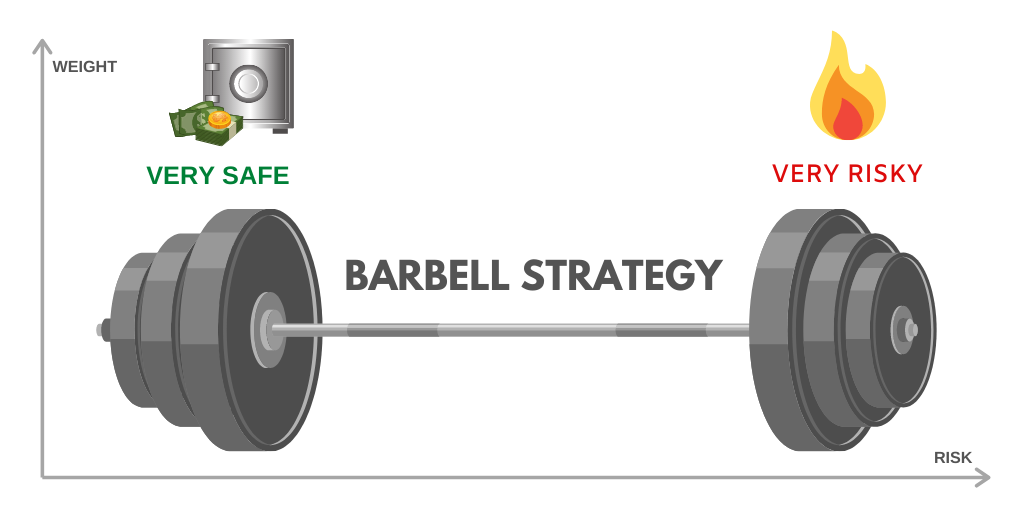Make Room For Happy Marketing Accidents

I have a pet theory that all problems are just resource allocation problems.
Can't hit your marketing goals?
Unhappy in your personal relationships?
Not losing weight despite trying really hard?
Having trouble starting a book reading habit?
Peering beneath the surface, all of these can be boiled down to a misallocation of time, energy and money; applying resources into a model that is ineffective at achieving the desired outcome.
Therefore, if we study and understand how to deploy our resources effectively, we can untangle some of the chaos in our lives.
Learn from people who do resource allocation for a living
I am a big fan of learning across domains.
Possibly one of the best things I've ever done for my marketing career is to read books about finance, stock investing and constructing a portfolio.
One learning you'll get out of reading such things is a concept called Barbell Strategy, which posits that to maximize your portfolio growth, you should hold both safe, low-risk assets and high-volatility, high-risk assets:

If you're still with me that problems in life are just resource allocation problems with different skins, then that means you can apply Barbell Strategy in several aspects of your life.
I mentioned a bunch of self-help issues at the start of this post, and at the risk of being too out-there with this post, applying the Barbell Strategy to those will be an exercise left to the reader.
The power of Barbell Strategy in marketing should be obvious: it liberates you to experiment, gives you room to explore. Many times you will fail, but when you don't, you will produce happy accidents.
Barbell Strategy for your marketing budget
The "70-20-10 rule" is one way to make this practical. This is from Wendy Clark, former SVP Marketing @ Coca Cola.
70% of your budget should go to business as usual.
20% on emerging trends.
10% on wild bets.
The exact percentages will change based on your situation (a startup may try this going in the reserve direction) but the sentiment is the same:
Some stuff you do should be obvious, rational, conservative; some stuff you do should make no sense and will probably fail.
Without giving yourself the room for happy marketing accidents, you'll always be doing "yesterday's tactics", always playing catch-up and waiting for someone else to make the first move.